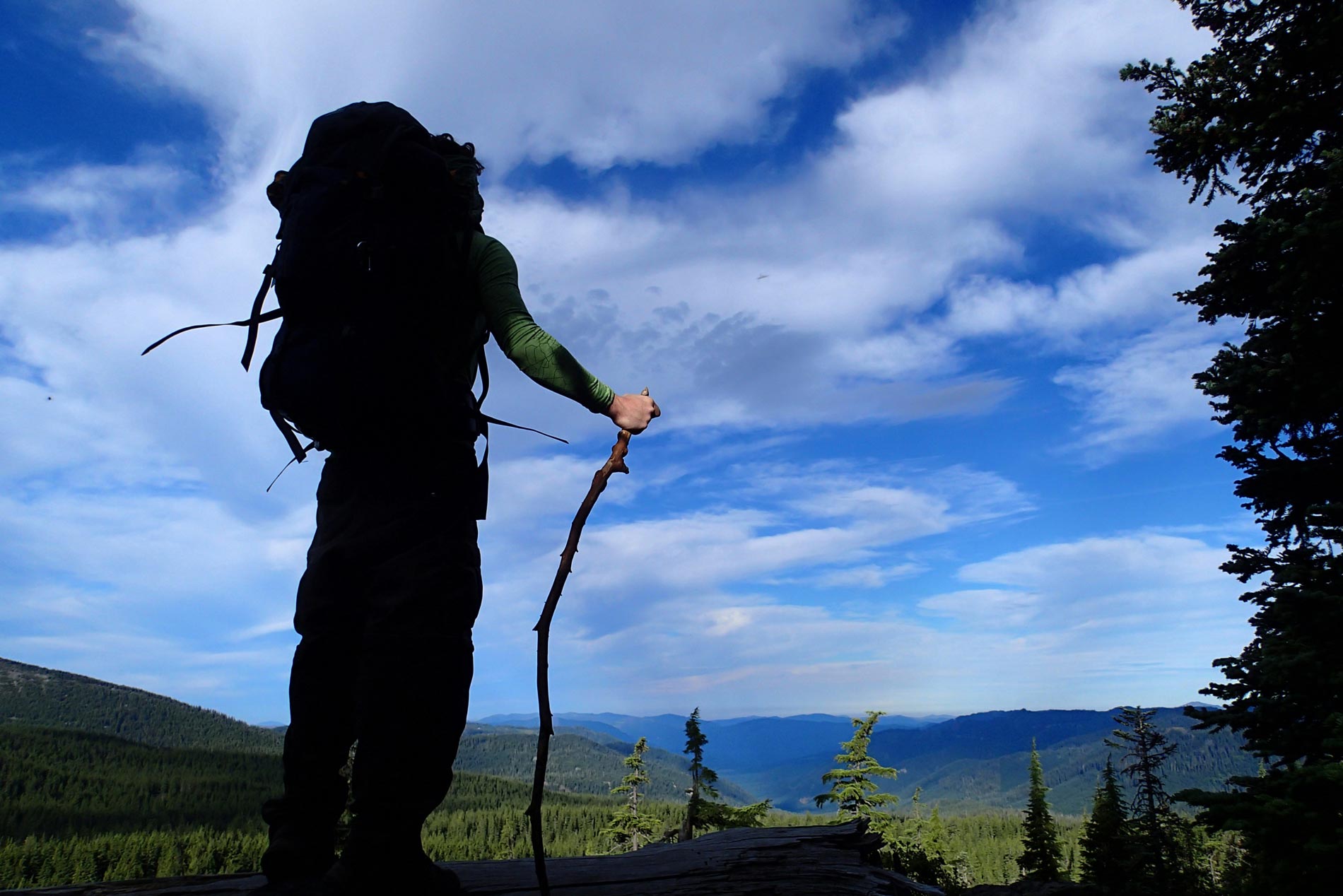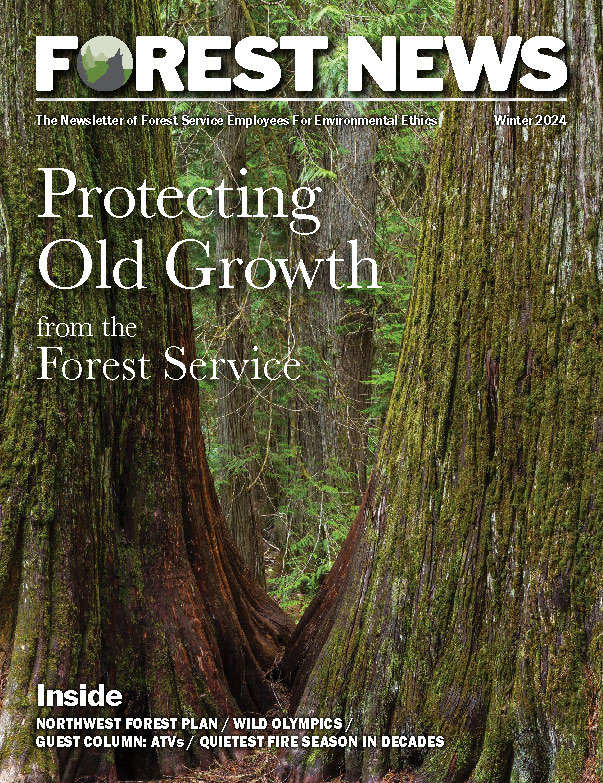As the year comes to a close, we’d like to take a moment to share with you a few of the victories we’ve celebrated so far in 2016. A few of our achievements this year include:
- Defeating Dangerous Legislation
- Reining in the War on Wildfire
- Keeping Helicopters Out of Wilderness Areas
- Stopping the Lochsa Land Swap
We hope you will consider making a special year-end gift. Rest assured we spend every penny we receive doing our very best to protect your irreplaceable National Forests and other public lands for the American people and generations to come.
While our public lands continue to face many threats, it’s important to remember that hard work and advocacy does indeed produce on-the-ground results.
Member Advocacy Defeats Bad Bill
Every year, it seems, there’s a new monster to slay in Congress. Last year, it was the Orwellian-named “Resilient Federal Forests Act of 2015” (H.R. 2647). That particular legislation would have gutted the environmental laws put in place to protect our public lands from all sorts of harmful development. It would have turned back the clock at least 30 years.
We asked our members to contact Undersecretary Robert Bonnie, who oversees the Forest Service. They did just that—in droves. The pressure paid off. Early in 2016, H.R. 2647 died an ignominious death, despite the support of powerful anti-environmental legislators.
We’ve been at this long enough to know that you can never declare victory when trying to safeguard public lands from congressional mischief.
One thing’s for sure. No matter what happens to bills like H.R. 2647, sooner or later more bad legislation will be in the offing.
With your help, we’ll remain vigilant and stop the political deals that would unravel our environmental laws or turn our public lands over to corporate interests.
Reining in the Wildfire Wars
In September 2015, as late-summer rains brought an end to a busy fire season in the Pacific Northwest, the Forest Service gave the go-ahead for a logging project that never should have happened.
For months, the lightning-sparked Wolverine Fire had smoldered in the remote mountains of Washington’s Okanogan-Wenatchee National Forest. Then, just as the weather turned cool and wet, some Forest Service manager (we don’t yet know who), approved a 50-mile-long, 300-foot-wide “community protection line” south of the fire. The Wolverine Fire never came within six miles of the line.
The line did nothing to stop the Wolverine Fire—nor will it stop future fires. In fact, it will actually increase the risk of fire by allowing invasive plant species to gain a foothold along the line.
What the Wolverine Fire line did do was provide timber—a lot of it—without the environmental reviews and public input that otherwise would have been mandatory. The line provided enough timber to fill almost 1,000 logging trucks, some of it, massive old growth.
This summer, FSEEE filed a lawsuit alleging that the Forest Service broke the law when it approved the Wolverine Fire community protection line.
Our lawsuit seeks to force the agency to rehabilitate the land torn asunder by the heavy equipment that was hastily deployed to cut the line before the fire went out altogether.
And our lawsuit seeks redress that would affect forests across the country. We are convinced that the regulation that allows the Forest Service to undertake major projects with no environmental review or public comment by declaring a fire emergency is in violation of the National Environmental Policy Act, which is the law of the land.
Every year, the Forest Service uses the same heavy-handed tactics to “fight” fires. They cut fire lines, they ignite backburns, they drop huge quantities of fire retardant. (Many studies show, by the way, that these tactics have little if any impact in stopping large fires.)
The FSEEE lawsuit seeks to force the agency to carefully examine the use of such tactics, and to ensure that when it fights fires, the Forest Service takes as light a toll on the land as possible.
With your help, we’ll stop environmentally destructive projects that should not be allowed under the guise of “fire emergency.”
Keeping Helicopters Out of Wilderness
Sometimes, a proposal comes along that just makes you shake your head. That was my reaction when we learned that the U.S. Army wanted to transform much of the North Cascade mountain range into a de facto military training zone.
Officials at Joint Base Lewis-McChord wanted to fly attack helicopters year-round, night and day, over some of the most spectacular stretches of mountains and forests on the continent.
We dug into the details of the proposal. Turns out the Army also wanted to practice landing maneuvers at eight particular locations. One of the proposed landing zones was near the iconic Pacific Crest Trail. Another was inside the congressionally designated Alpine Lakes Wilderness Area.
We used our contacts to spread word about the Army’s scheme far and wide. The issue received national media attention. Conservationists and local residents and businesses were unified in opposition to the plan.
We’re pleased to report that the Army abandoned its plans earlier this year. It’s not easy to take on the U.S. Army, but we did. And with the support of our members, we won.
R.I.P. Lochsa Land Swap
For more than a decade, the Western Pacific Timber company has worked doggedly to trade 39,000 acres of heavily logged land for thousands of acres of healthy forests on Idaho’s Nez Perce-Clearwater National Forest.
The scheme is a classic stumps-for-forests land exchange, and FSEEE joined other conservation groups in fighting it tooth and nail.
Last May, Idaho Sen. Jim Risch withdrew his support for the Lochsa land exchange after many of his constituents voiced intense opposition to the scheme.
“A critical mass of consensus is essential to resolving this issue,” Risch wrote. “That does not exist and is not even close at this time. Until substantial consensus can be achieved, a legislated exchange is not an option I can pursue.”
That’s great news. But like a zombie in a B-grade movie, the Lochsa land exchange seems to be the Thing That Wouldn’t Die. A Forest Service environmental review of the exchange remains officially “on hold.”
We’ll continue to monitor the Forest Service’s stance on the exchange. And we’ll fight any and all proposals to trade healthy public forestlands for clearcuts.
•••
Those are just a few of our accomplishments in 2016. Every day at FSEEE, we work our hardest to ensure that our public lands legacy remains intact for generations to come.
Thanks to you for your encouragement and your support. Please make a special year-end donation today, and join us in making sure 2017 is a year of many more victories for our National Forests!



Spread the word to eliminate the military, let only members of American environmental groups protect our country whether it be land, sea or air. All military reservation’s can go back to nature, IS THIS WHAT YOU ARE AVOCATING by tying the military’s hands on all training. What do you brilliant minds suggest.